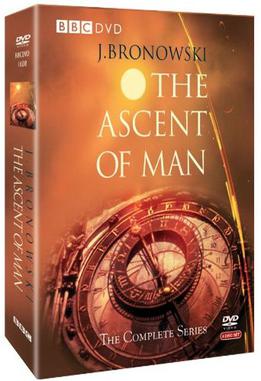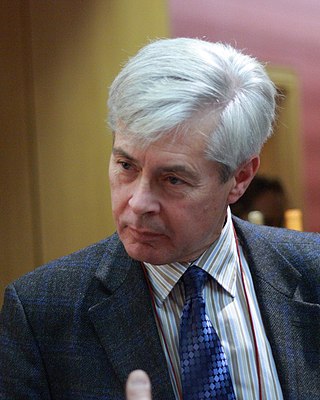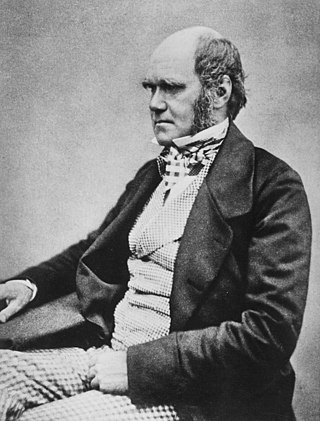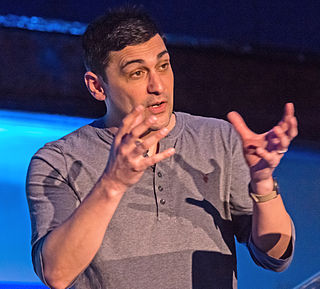Related Research Articles

Darwinism is a theory of biological evolution developed by the English naturalist Charles Darwin (1809–1882) and others, stating that all species of organisms arise and develop through the natural selection of small, inherited variations that increase the individual's ability to compete, survive, and reproduce. Also called Darwinian theory, it originally included the broad concepts of transmutation of species or of evolution which gained general scientific acceptance after Darwin published On the Origin of Species in 1859, including concepts which predated Darwin's theories. English biologist Thomas Henry Huxley coined the term Darwinism in April 1860.

On the Origin of Species is a work of scientific literature by Charles Darwin that is considered to be the foundation of evolutionary biology; it was published on 24 November 1859. Darwin's book introduced the scientific theory that populations evolve over the course of generations through a process of natural selection. The book presented a body of evidence that the diversity of life arose by common descent through a branching pattern of evolution. Darwin included evidence that he had collected on the Beagle expedition in the 1830s and his subsequent findings from research, correspondence, and experimentation.

Sir David Frederick Attenborough is a British broadcaster, biologist, natural historian and author. He is best known for writing and presenting, in conjunction with the BBC Natural History Unit, the nine natural history documentary series forming the Life collection, a comprehensive survey of animal and plant life on Earth.

The Ascent of Man is a 13-part British documentary television series produced by the BBC and Time-Life Films first broadcast in 1973. It was written and presented by Polish-British mathematician and historian of science Jacob Bronowski, who also authored a book adaptation. Intended as a series of "personal view" documentaries in the manner of Kenneth Clark's 1969 series Civilisation, the series received acclaim for Bronowski's highly informed but eloquently simple analysis, his long, elegant monologues, and its extensive location shoots. The programme began broadcasting on BBC2 at 9 pm on Saturday, 5 May 1973 and was released in the US 7 January 1975.

Melvyn Bragg, Baron Bragg of Wigton in the County of Cumbria, is an English broadcaster, author and parliamentarian. He is the editor and presenter of The South Bank Show, and the presenter of the BBC Radio 4 documentary series In Our Time.
Start the Week is a discussion programme broadcast on BBC Radio 4 which began in April 1970. The current presenter is Tom Sutcliffe. The previous regular presenters were Richard Baker, Russell Harty, Melvyn Bragg, Jeremy Paxman and Andrew Marr

In Our Time is a live BBC radio discussion series and podcast exploring a wide variety of historical, scientific and philosophical topics, presented by Melvyn Bragg, since 15 October 1998. It is one of BBC Radio 4's most successful discussion programmes, acknowledged to have "transformed the landscape for serious ideas at peak listening time".

Life in Cold Blood is a BBC nature documentary series written and presented by David Attenborough, first broadcast in the United Kingdom from 4 February 2008 on BBC One.
Armand Marie Leroi is a New Zealand-born Dutch author, broadcaster, and professor of evolutionary developmental biology at Imperial College in London. He received the Guardian First Book Award in 2004 for his book Mutants: On Genetic Variety and the Human Body. He has presented scientific documentaries on Channel 4 such as Alien Worlds (2005) and What Makes Us Human (2006), and BBC Four such as What Darwin Didn't Know (2009), Aristotle's Lagoon (2010), and Secret Science of Pop (2012).

Peter J. Bowler is a historian of biology who has written extensively on the history of evolutionary thought, the history of the environmental sciences, and on the history of genetics. His 1984 book, Evolution: The History of an Idea is a standard textbook on the history of evolution; a 25th anniversary edition came in 2009. His 1983 book The Eclipse of Darwinism: Anti-Darwinian Evolution Theories in the Decades Around 1900 describes the scientific predominance of other evolutionary theories which led many to minimise the significance of natural selection, in the first part of the twentieth century before genetics was reconciled with natural selection in the modern synthesis.

Charles Robert Darwin was an English naturalist, geologist and biologist, widely known for his contributions to evolutionary biology. His proposition that all species of life have descended from a common ancestor is now generally accepted and considered a fundamental concept in science. In a joint publication with Alfred Russel Wallace, he introduced his scientific theory that this branching pattern of evolution resulted from a process he called natural selection, in which the struggle for existence has a similar effect to the artificial selection involved in selective breeding. Darwin has been described as one of the most influential figures in human history and was honoured by burial in Westminster Abbey.

The Genius of Charles Darwin is a three-part television documentary, written and presented by evolutionary biologist Richard Dawkins.

The Darwin Centennial Celebration of 1959 was a worldwide celebration of the life and work of British naturalist Charles Darwin that marked the 150th anniversary of his birth, the 100th anniversary of the publication of On the Origin of Species, and the 125th anniversary of the second voyage of HMS Beagle. The major center of festivities and commemoration was the University of Chicago, which hosted a five-day event, organized by anthropologist Sol Tax, that attracted over 2,500 registered participants from across the world. According to historian V. Betty Smocovitis, the Chicago celebration "outshone-and arguably may still outshine-all other scientific celebrations in the recent history of science."

Charles Darwin and the Tree of Life is a 2009 television documentary about Charles Darwin and his revolutionary theory of evolution through natural selection, produced by the BBC to mark the bicentenary of Darwin's birth. It is part of the BBC Darwin Season. The presenter, David Attenborough, outlines the development of the theory by Darwin through his observations of animals and plants in nature and in the domesticated state, visiting sites important in Darwin's own life, including Down House, Cambridge University and the Natural History Museum, and using archive footage from Attenborough's many nature documentaries for the BBC. He reviews the development of the theory since its beginnings, and its revolutionary impact on the way in which humans view themselves – not as having dominion over the animals as The Bible says, but as part of the natural world and subject to the same controlling forces that govern all life on Earth.
John van Wyhe, is a British historian of science, with a focus on Charles Darwin and Alfred Russel Wallace, at the National University of Singapore. He holds various academic and research positions, ranging from founder and director of The Complete Works of Charles Darwin Online, Scientific Associate, The Natural History Museum (London), a Fellow of the Linnean Society and a Member of the British Society for the History of Science. He has given more than 50 public lectures on Darwin in more than a dozen countries. He lectures and broadcasts on Darwin, evolution, science and religion and the history of science around the world. He also wrote The Darwin Experience, a biographical book about Charles Darwin.
First Life is a 2010 British nature documentary series written and presented by David Attenborough, also known by the expanded titles David Attenborough's First Life (UK) and First Life with David Attenborough (USA). It was first broadcast in the US as a two-hour special on the Discovery Channel on 24 October 2010. In the United Kingdom it was broadcast as a two-part series on BBC Two on 5 November 2010. First Life sees Attenborough tackle the subject of the origin of life on Earth. He investigates the evidence from the earliest fossils, which suggest that complex animals first appeared in the oceans around 540 million years ago, an event known as the Cambrian Explosion. Trace fossils of multicellular organisms from an even earlier period, the Ediacaran biota, are also examined. Attenborough travels to Canada, Morocco and Australia, using some of the latest fossil discoveries and their nearest equivalents amongst living species to reveal what life may have been like at that time. Visual effects and computer animation are used to reconstruct and animate the extinct life forms. Attenborough's Journey, a documentary film profiling the presenter as he journeyed around the globe filming First Life, was shown on BBC Two on 24 October 2010. A hardback book to accompany the series, authored by Matt Kaplan with a foreword by Attenborough, was published in September 2010.

Adam David Rutherford is a British geneticist and science populariser. He was an audio-visual content editor for the journal Nature for a decade, and is a frequent contributor to the newspaper The Guardian. He hosts the BBC Radio 4 programmes Inside Science and The Curious Cases of Rutherford and Fry; has produced several science documentaries; and has published books related to genetics and the origin of life.
Attenborough: 60 Years in the Wild is a three-part BBC documentary series chronicling the 60 years career making wildlife programmes of Sir David Attenborough. The first hour-long programme, titled "Life on Camera" was broadcast on Friday 16 November 2012 on BBC Two at 9pm. The second part, "Understanding the Natural World" and third and final part, "Our Fragile Planet" were broadcast on following Fridays, 23 and 30 November 2012.

The Voyage of Charles Darwin was a 1978 BBC television serial depicting the life of Charles Darwin, focusing largely on his voyage on HMS Beagle. The series encompasses his university days to the 1859 publication of his book On the Origin of Species and his death and is loosely based on Darwin's own letters, diaries, and journals, especially The Voyage of the Beagle and The Autobiography of Charles Darwin. It starred Malcolm Stoddard as Darwin and Andrew Burt as Captain Robert FitzRoy.

Romanticism was an intellectual movement that arose in the late eighteenth century and continued through the nineteenth century. The movement had roots in the arts, literature, and science. Largely conceived as a reaction towards the extreme rationalism of the Enlightenment, it championed expressing emotions through aesthetic and emphasizing the transcendent allure of the natural world.
References
- 1 2 3 BBC Press Pack: The BBC's Darwin Season: marking the life and work of Charles Darwin – introduction
- ↑ BBC unveils line-up for Darwin season, Broadcast, 3 July 2008
- ↑ Dear Darwin, BBC Radio 4
- ↑ Hunting the Beagle, BBC Radio 4
- ↑ Darwin: My Ancestor, BBC Radio 4
- 1 2 3 4 BBC Press Pack part 2, 21 January 2009